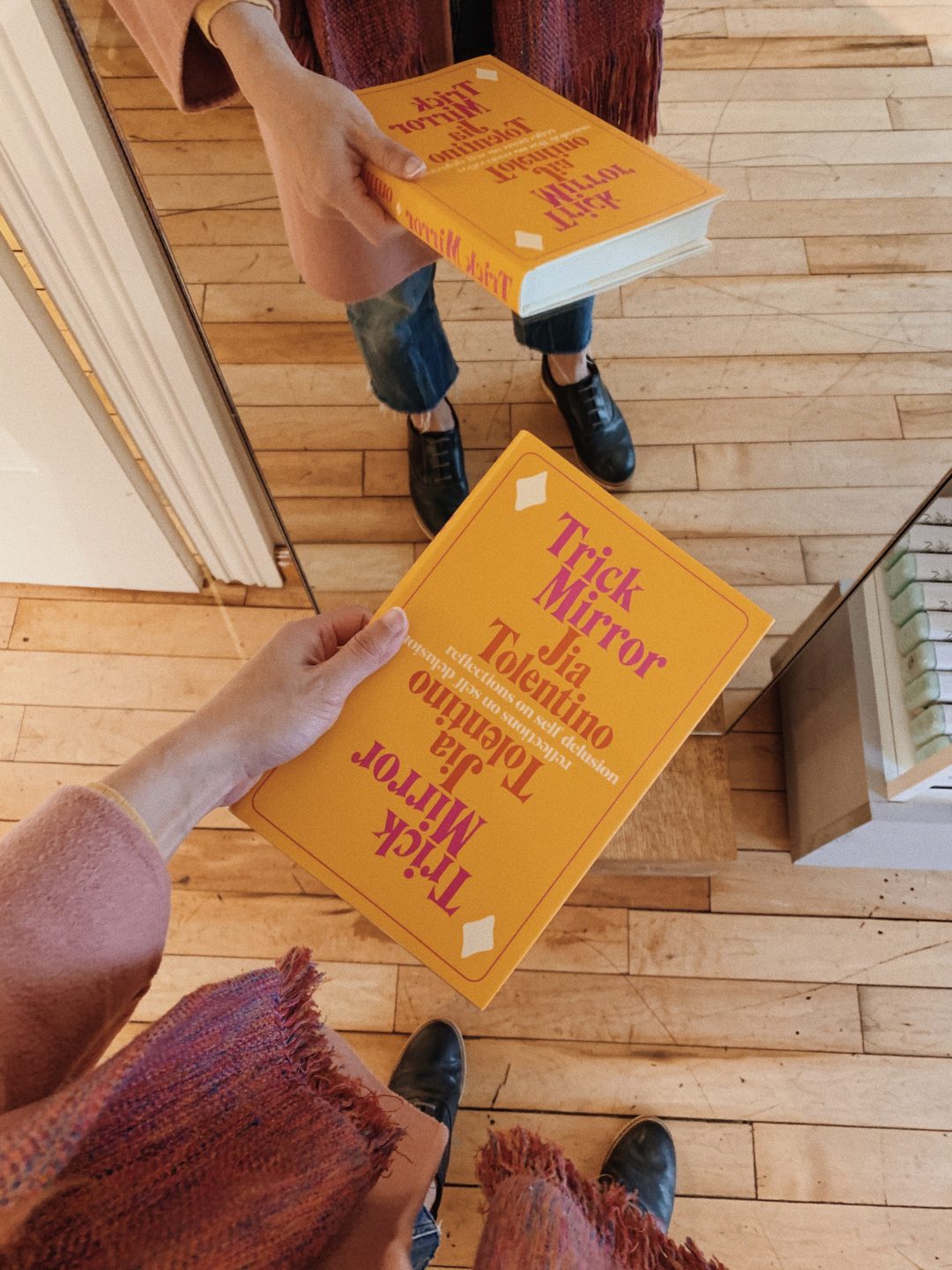
Published by Random House on 06 Aug 2019
Trick Mirror is an enlightening, unforgettable trip through the river of self-delusion that surges just beneath the surface of our lives. This is a book about the incentives that shape us, and about how hard it is to see ourselves clearly in a culture that revolves around the self. In each essay, Jia writes about the cultural prisms that have shaped her: the rise of the nightmare social internet; the American scammer as millennial hero; the literary heroine’s journey from brave to blank to bitter; the mandate that everything, including our bodies, should always be getting more efficient and beautiful until we die.
Trick Mirror includes nine essays, all having to do with this particular flavour of self-delusion that is unique to this current moment of American identity, culture, technology, and discourse, which have all become extricable from each other in this era:
- The I in the Internet: on how the internet has gone from a place of pleasure to a place of increasing exhaustion
- Reality TV Me: on the progression from reality TV to social media
- Always Be Optimizing: on the pursuit of becoming the ideal woman
- Pure Heroines: on literary women
- Ecstasy: comparing drugs and religion
- The Story of a Generation in Seven Scams: including your favourites—Operation Varsity Blues, Fyre Fest, Theranos/Elizabeth Holmes, Anna Delvey—and much more
- We Come from Old Virginia: on institutional dismissal of sexual assault
- The Cult of the Difficult Woman: on how female difficulty has been reframed
- I Thee Dread: on the gender inequality entrenched in straight marriage
As with most collections, there were some essays that stood out more to me than others, my favourites being "The I in the Internet," "Reality TV Me," "Always Be Optimizing," and "The Story of a Generation in Seven Scams," which is quite a handful of favourites, considering there are only nine essays in the collection.
I enjoyed half the essays and at least found the other half insightful; it was a mixed bag. Tolentino is clearly well-read and well-informed, making several academic and cultural references throughout her essays. However, as a fiction reader who is trying to read more nonfiction, I'm often looking for an anecdote, a personal touch, a memoir-like quality to hook me into the narrative and get me invested. Rather, my feeble mind found some essays a bit too dense with information. On the other hand, some other essays felt inconclusive.
In spite of those gripes, as weeks passed, I found that I couldn’t put this book out of my mind. I looked up Tolentino's new articles as a staff writer for the New Yorker (check out "How TikTok Holds Our Attention" and "The Age of Instagram Face: how social media, FaceTune, and plastic surgery created a single, cyborgian look"). I peeped her social media (subsequently getting into The 1975 after seeing her post a concert video from Pitchfork Paris). I looked up podcasts she guest starred in, particularly loving her feature in In Good Company, hosted by Otegha Uwagba of Women Who.
In their discussion, two points about Tolentino's approach to writing especially stuck with me: 1) to write informatively, she constantly self-edits to avoid self-indulgence, and 2) to write realistically, she resists neat conclusions by sitting in uncertainty.
1) On writing informatively: "I'm interested in myself, obviously—we’re all naturally interested in ourselves—but I'm really interested in myself as the entity that has allowed me entry into the world. I'm interested in myself as a conduit for what I learn. I mean, I naturally insert myself into things because often I find that firsthand experience is the way that you experience the world, but the self to me is interesting only as an avenue, and it's extremely interesting as that avenue, but it's not interesting as a thing... The purpose of a sentence about me has to convey something about the idea that I'm writing about."
2) On writing realistically: "I've been [trying] to write strong arguments with no conclusions... I feel absolute certainty about what I believe politically and what I believe morally, but that doesn't really lead to a sense of certainty in real life at all for me. And I wanted my writing to reflect that and not to do the thing that I think is reflexive and natural to do, which is wrap it up and provide a takeaway, because I just don't have that feeling in life... That is the fertile ground: the uncertainty. It's sort of like a shared language for that uncertainty seems foundational to whatever is gonna happen next. But I think we need to sit. It's worth sitting with that uncertainty for as long as we can."
It’s funny that Tolentino pointed out those two intentions, because those were essentially, exactly my gripes with the essays I initially found weaker: I wanted them to be more personal and I wanted there to be takeaways tied up with string. I still prefer the essays I preferred, but now I appreciate the other essays for what they are—beginnings of conversations with more to explore—and appreciate not being led into the pretty trap of self-deluded conclusions.
This book has brought so much clarity. Tolentino introduced concepts that helped me frame thoughts that I previously found too frustrating to lean into, especially regarding social media (I straight up deactivated Facebook, and at least once a week I muse about how nice it'd be to do the same thing with Instagram).
Tolentino packed so much into her essays, and there's still so much left to understand and explore. This is a book to spark conversation. It's a book that I'll be returning to again and again.